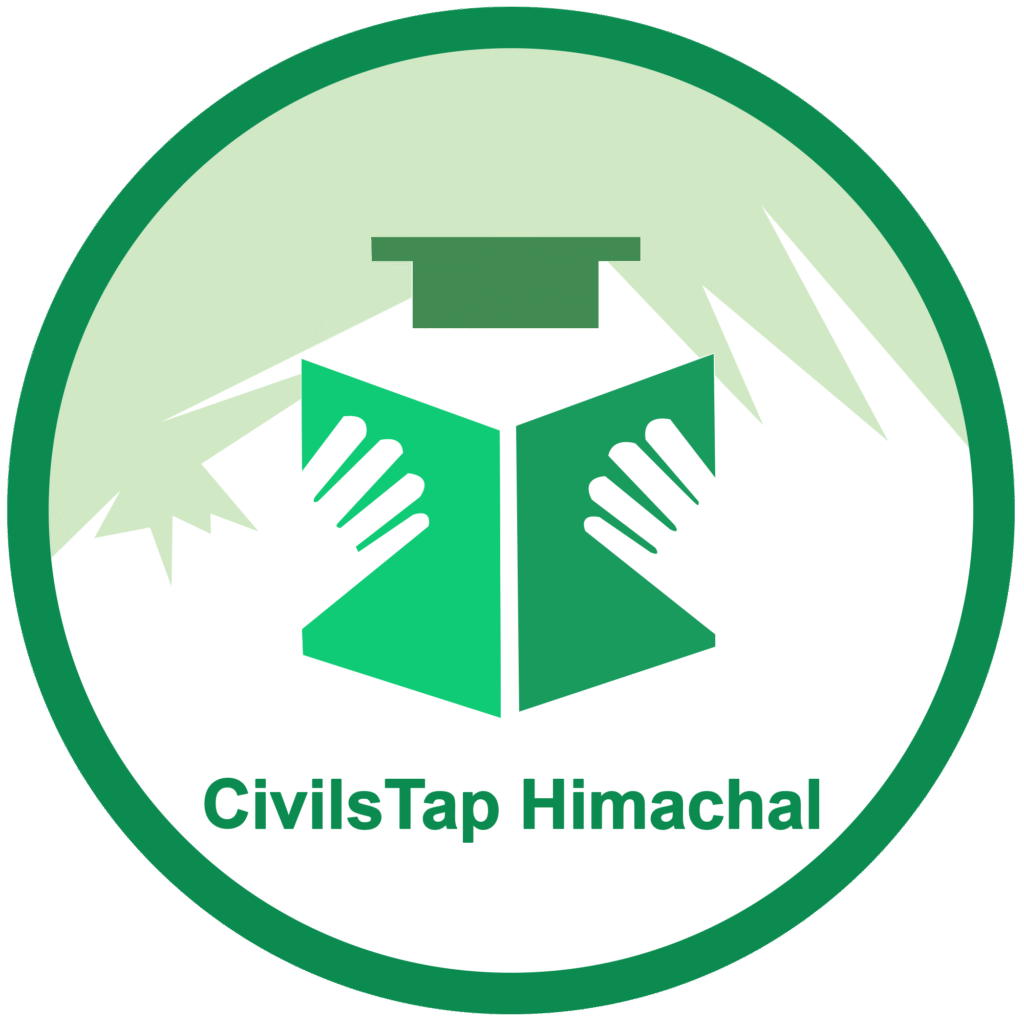
Expert Strategy to Prepare Notes from Daily Current Affairs
Current Affairs form the backbone of UPSC and HPAS preparation. Every year, a significant portion of both Prelims and Mains questions are directly or indirectly linked to recent events, government policies, reports, and global developments.
However, the real challenge aspirants face is not just reading daily news — it’s how to prepare concise and structured notes that can be revised efficiently during exam time.
At CivilsTap, our experts have designed a smart strategy to help you prepare, organize, and retain current affairs effectively.
1. Start with Reliable Sources
The foundation of good current affairs notes lies in choosing the right sources. Avoid reading multiple newspapers and channels. Stick to trusted and exam-relevant platforms.
Recommended daily sources include:
The Hindu or Indian Express
PIB (Press Information Bureau)
PRS India
CivilsTap’s curated Current Affairs updates
These sources cover all UPSC-relevant information — from government schemes to international reports — in a concise, exam-oriented manner.
2. Follow a Daily Note-Making Routine
Consistency is key. Set aside one hour daily exclusively for current affairs.
Here’s how you can divide it:
30 minutes: Read daily news analysis on CivilsTap’s Current Affairs page.
20 minutes: Note down key points under static topics like polity, economy, environment, etc.
10 minutes: Revise the previous day’s notes or attempt the Daily Quiz to test retention.
This ensures that your notes evolve continuously and your understanding deepens over time.
3. Organize Notes Topic-Wise, Not Date-Wise
One of the most common mistakes aspirants make is maintaining current affairs chronologically. While daily notes help you stay updated, revision becomes extremely difficult later.
Instead, maintain topic-wise notebooks or digital folders, such as:
Polity & Governance
Economy & Schemes
Environment & Ecology
Science & Tech
International Relations
For ready-made topic-wise compilations and structured PDFs, explore CivilsTap’s Study Material section.
4. Use a Structured Format for Every Note
Your notes should not just be a collection of facts. Follow a standard format that makes revision easier:
Example Format:
News Topic: Example – India’s New Space Mission
Source: The Hindu / PIB
Context: Why it is in news
Key Facts: Important data, policies, or initiatives
Relevance: GS Paper link or topic area
Keywords/Tags: Space, ISRO, Science & Tech
Using a structured format helps you connect static and dynamic portions, improving answer writing and recall.
5. Integrate Notes with Static Syllabus
The real power of current affairs notes lies in integration with the UPSC syllabus.
For example:
News: India launches new digital public infrastructure policy
Static Link: GS Paper II – Governance, e-Governance Initiatives
CivilsTap’s Courses help you master this integration through guided classes that link daily news with core concepts of GS Papers and optional subjects.
6. Revise and Update Weekly
Without regular revision, even the best notes lose value. Make it a habit to:
Revise all your weekly notes every Sunday
Add new facts from PIB or reports
Highlight repeated issues — they are often exam favorites
Use CivilsTap’s Free Downloads to access monthly compilations, reports, and toppers’ notes for efficient revision.
7. Test Your Knowledge Regularly
Testing is crucial to understanding how well you’ve absorbed the information. After every few days, try answering MCQs or writing short answers.
Visit CivilsTap’s Daily Quiz to:
Practice current affairs-based questions
Identify weak areas
Strengthen recall through daily reinforcement
This active recall technique ensures long-term retention and exam-readiness.
8. Digital Tools for Smarter Note-Making
In 2025, digital preparation tools are a huge advantage. Use apps like Notion, Evernote, or OneNote for quick categorization.
However, if you prefer handwritten notes, organize them by topic and use color codes for facts, analysis, and opinions.
You can also download pre-organized, printable templates from CivilsTap’s Free Downloads to make note-making effortless.
Points To Be Noted
Preparing notes from daily current affairs isn’t about writing everything — it’s about filtering, structuring, and connecting. When done right, it becomes your most powerful revision tool before the UPSC exam.
At CivilsTap, we simplify your preparation with daily updates, quizzes, structured study material, and guided courses designed by experts.
👉 Start your smart UPSC preparation journey today with CivilsTap Courses and make current affairs your strength for UPSC 2025.
Latest Blogs
Ask your Query
Browse By Category
- Daily Current Affairs (4)
- EPFO (4)
- HP Allied (9)
- HPAS/HAS (30)
- IAS (34)
- Monthly Current Affairs (1)
- PCS (32)
- UPSC (31)
- Weekly Current Affairs (2)
- Yearly Current Affairs (5)

Archives
- January 2026 (2)
- December 2025 (8)
- November 2025 (10)
- October 2025 (10)
- September 2025 (10)
- August 2025 (10)
- July 2025 (6)

 January 6, 2026
January 6, 2026






Leave Comment